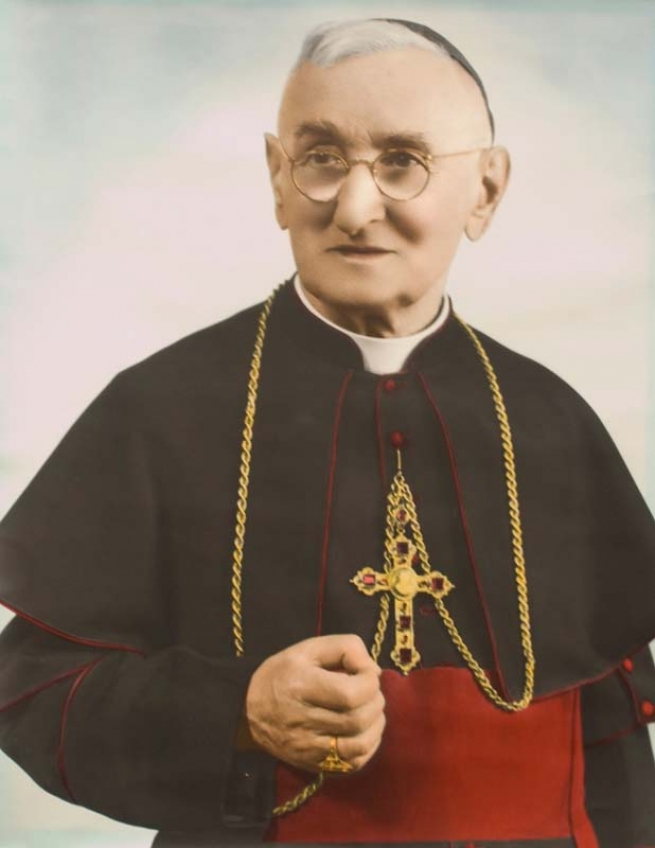As a boy, Augusto Bertazzoni was a disciple in Turin of Saint Giovanni Bosco and was among those who, in 1887, offered their lives for the salvation of the saint of youth, who had also prophesied the episcopal miter to the young Augusto. He was a friend of Luigi Orione and of Fr Giovanni Calabria, priests, today saints. He entered the seminary of Mantua, when Mons. Giuseppe Sarto, today St. Pius X, was rector, with the great desire to become a priest. He was appointed archpriest-parish priest of San Benedetto Po, where he exercised his ministry from 30 April 1904 to 30 June 1930.
Raised by Pius XI to the episcopal chair of Potenza and Marsico, consecrated on 15 August 1930, on 29 October he entered the Diocese. In the entrance speech he said "to bring peace, the peace of Christ in all hearts". He took care of vocations, renewed the clergy, engaged the laity in catechesis, in the Azione Cattolica association, in works of charity, culture, social solidarity. A far-sighted educator of the young, he urged the educational commitment of his priests, as well as of men and women religious, to whom he recommended having a spirit of paternity for the new generations.
During the Second World War, when bombs destroyed the episcopate of Potenza, he decided to remain close to his flock: he did his best to help the Jews and political dissidents. After the war he was a figure of balance between the various political forces and dedicated himself to healing the wounds of the world conflict and to the arduous and generous work of rebirth and the spiritual, moral and material reconstruction of the diocese. He was Conciliar Father of the Second Vatican Council.
Monsignor Bertazzoni, a true man of God, a man of faith and prayer, was attentive to the spiritual needs of the faithful and also of non-believers, for whom he spent himself to the end. The characteristics of his episcopate can be summarized in love for God and neighbor without distinction, in obedience to the Pope and the Church, in the paternal attitude towards priests and seminarians, in ardent pastoral zeal. He led a life of simplicity, marked by humility, poverty and a spirit of sacrifice. He was a witness of the supernatural and passionate desire to bring God back into history at every level: personal, family, social.


